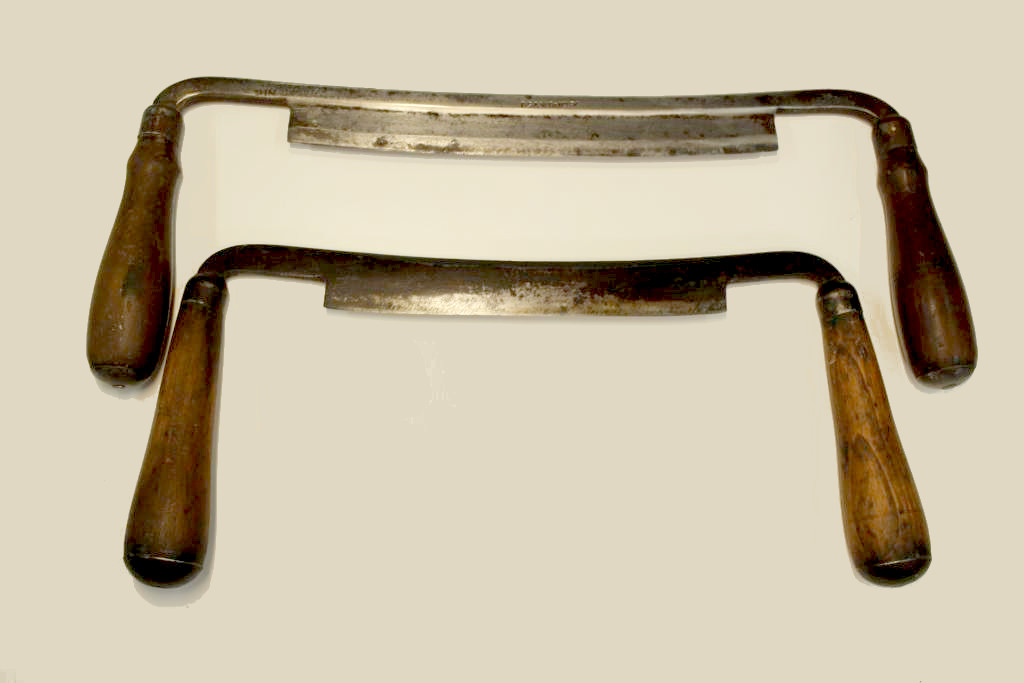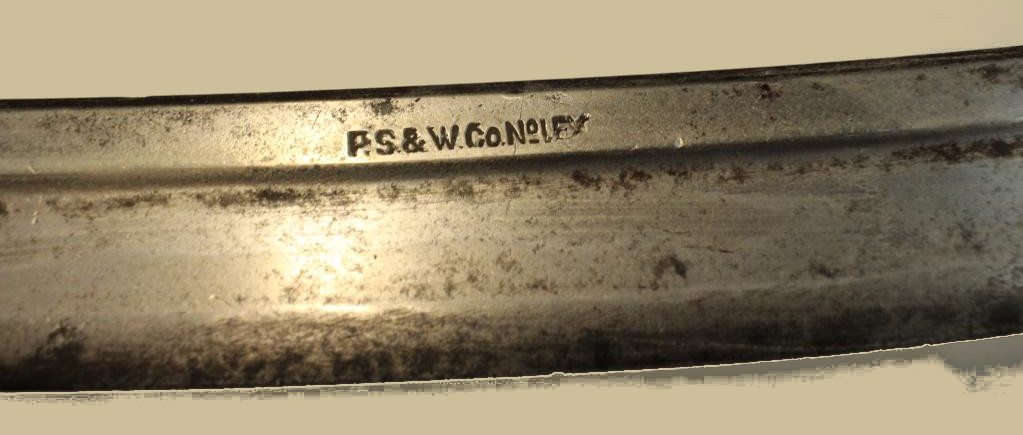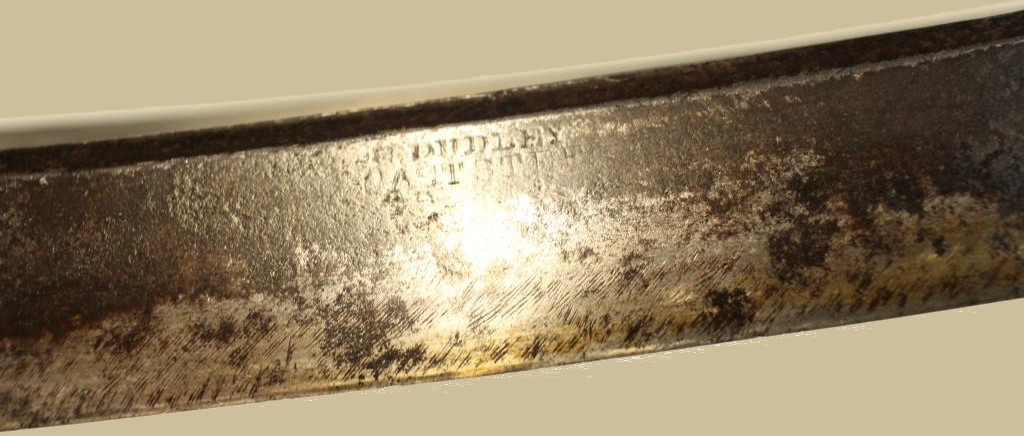Day 17, a pair of drawknives



Here is a vintage pair of drawknives that came to me during the COVID pandemic. I don't really have much use for drawknives, as I do not do a ton of freehand shaping of wood, nor removal of bark from raw timber, but they juste seemed like cool artifacts anyway. You often see them used at a shaving horse which is a traditional bench/clamp that can be used to hold timbers in place. They are often used on "green" timber, and in the hands of a skilled craftsman, can produce items which you'd be hard pressed to differentiate from those turned on a lathe.
I did some work to remove the rust and clean them, but they have not been extensively modified from the condition that they came to me.
The top one has a 9" blade that is labelled P.S. and W. Co., which stands for "Pex, Stow and Wilcox". They were founded in 1870 in Southington, Connecticut. The maker's mark specifies that this is a No.1 Extra model. I tried scanning for this particular model in various catalog scans I could find online, but in the short time I tried, I didn't find any references, so I don't have any clue as to what the date might be. Various online ebay listings and the like show a variety of different stamping styles, which appeared to change over time. Perhaps some additional research will reveal its mysteries.
The second has a blade which is 7" long, and bears a clear "Dudley" stamp, and I suspect underneath the words "Cast Steel". I have been unable to locate any information about the manufacturer. There is an English company, Dudley Tool, founded in 1965, but that seems rather too young for this kind of tool. There is a town of Dudley in England, which has a strong history in steel and toolmaking. I suspect it is quite likely that it came from a company in Dudley, perhaps drawing a trademark as a place of manufacture, rather than a company name.
I do not think these items will find much use, but they are interesting items from a more handcrafted time.
TGIF, and best wishes to all.